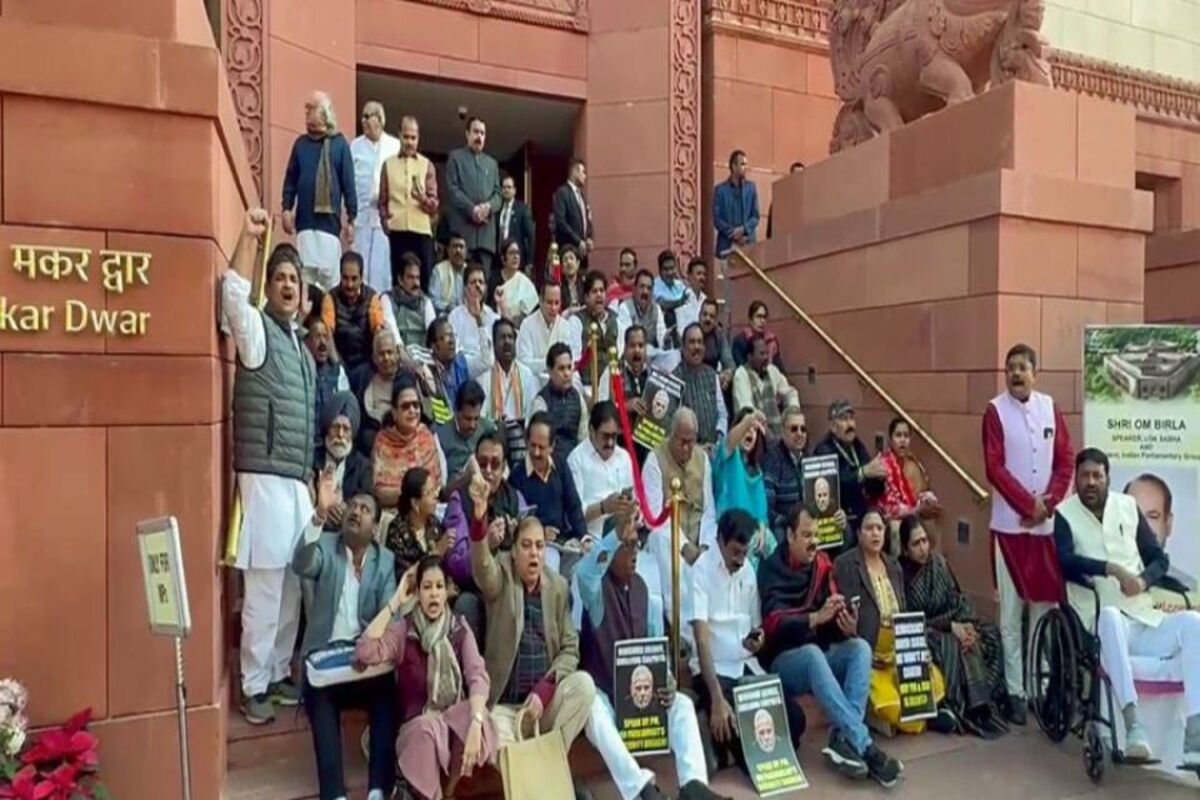Wake-up call
The global democratic landscape in 2024 reveals an unsettling yet fascinating trend. Across continents, voters have upended incumbents, embraced polarising ideologies, and gravitated toward both Right and Left-wing populism.
The parliamentarians were raising their voices against the security breach inside the House.
Ashok Chatterjee | Kolkata | January 14, 2024 9:50 am

The Winter Session of Parliament in December, last year saw the suspension of 146 opposition MPs, which, political observers feel, is unprecedented. The situation was so precarious that only 42 of the legislators from the INDIA bloc remained inside.
The parliamentarians were raising their voices against the security breach inside the House.
Advertisement
But what does this mean to Indian politics? With the Lok Sabha election due within a couple of months, would this have any impact on it? Experts feel, hardly.
Advertisement
Prof Zaad Mahmood of Presidency University feels this move will hardly have any impact on the people. “What has happened in Indian polity is that the legislature has lost its relevance in politics, and this is not just in New Delhi. Nobody is interested in what goes on in the West Bengal legislative Assembly or in the debates and discussions in the Parliament,” said the professor, adding that as the parties become dominant, the shine and glory of the legislature gets diminished in front of the executive.
Prof Mahmood feels the suspensions would not have taken place without the Assembly results in the states which went to the polls recently. “These suspensions are an assertion by a resurgent BJP and the Ram Mandir coming up. The move by the BJP is to incapacitate the Opposition before the polls,” said he.
Prof Mahmood feels the suspensions, in effect, might lead to the INDIA alliance firm up because of the high handedness of the government. If their existence of power is at stake then they have a greater interest to combine and oppose the bigger party. “This has also happened during the Congress reign when Indira Gandhi’s assertion led to an anti-Congress alliance,” said Mr Prof Mahmood.
Jadavpur University professor Imankalyan Lahiri feels it is unfortunate that the Parliament move will make any dent with the majority of voters. “Corruption is a major issue but we have seen even issues like Narada and Saradha scams had no impact on the votes. I don’t think people are too bothered about corruption.
It is unfortunate but true,” said Prof Lahiri.
The professor adds that there is an ethics committee in the LS. And you have to believe in the committee of you have faith in democracy. If they make a decision, we have nothing to say as a citizen. These suspensions have nothing to do with Bengal politics, even though their MPs are suspended.
Calcutta University professor feels institutional structure of Indian democracy functions differently than the actual politics. Prof Asis Mistry said, “The institutional process and the politics on the ground are moving in different directions. The brand of populism exists in India. The majority, minority binary is created in a way, it is hard to dismantle it and the rulers are very comfortable about it. Interestingly, if you look at it, they are not violating the institutional processes. They are playing small games with these institutions. They have snatched their autonomies. Through their brand of populist politics, they somehow regulated or controlled these institutions.”
Advertisement
The global democratic landscape in 2024 reveals an unsettling yet fascinating trend. Across continents, voters have upended incumbents, embraced polarising ideologies, and gravitated toward both Right and Left-wing populism.
In a significant milestone for Indian democracy, Nagaland held its first civic elections in 20 years, featuring 33 per cent seat reservations for women.
Gaurav Gogoi, who is contesting from Jorhat constituency, praised his father's principled governance approach which prioritized public service over personal gain.
Advertisement
